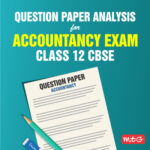Here are some multiple-choice questions (MCQs) for CBSE Chapter 3 Class 10 Science Metals and Non-Metals. These MCQs are designed to help students become familiar with the question types and their difficulty levels according to the updated CBSE Syllabus. With the recent changes in the exam pattern, MCQs have become an important part of the Class 10 Science Board exam. To assist students in understanding these question types, we have compiled MCQs specifically for Chapter 3 to make fundamentals strong. Additionally, answers to these MCQs are also available for students to reference. These MCQs are available in this post, enabling students to access them at any time during their studies. Students can also use the CBSE Class 10 Sample Papers books for more practice.
Latest – Acid, Bases and Salt Class 10 Science MCQs
Important – CBSE Class 10 Science MCQ
Important – Class 10 Maths MCQ: Free Chapter-Wise PDFs
CBSE Class 10 Chapter 3 Metals and Non-Metals MCQs
Q.1. Beakers A, B and C contain zinc sulphate, silver nitrate and iron (II) sulphate solutions respectively. Copper pieces are added to each beaker. Blue colour will appear in case of
(a) beaker A (b) beaker B
(c) beaker C (d) all the beakers.
Answer
Practice More – CBSE Practice Papers Class 10 (2024) – Free PDF Download
Q.2. The diagram shows a chemical cell.

Which statement about this chemical cell is correct?
(a) The copper metal is the negative electrode.
(b) The electrons flow from the magnesium metal to the copper metal.
(c) At the magnesium metal, bubbles of hydrogen gas are formed.
(d) At the copper metal, copper(II) ions are produced.
Answer
Q.3. The electronic configurations of three elements X, Y and Z are :
X : 2 Y : 2, 8, 7 Z : 2, 8, 2
Which of the following is correct regarding these elements?
(a) X is a metal. (b) Y is a metal.
(c) Z is a non-metal.
(d) Y is a non-metal and Z is a metal.
Answer
(d)
Also Check – CBSE Sample Papers Class 10 for 2024 Board Exams
Q.4. The given apparatus shows the reaction of steam with heated solid ‘X’.

The equation for the reaction is
Steam + Solid ‘X’ → Solid ‘Y’ (Residue)+ Gas ‘Z’ X, Y and Z are respectively.
(a) copper, copper oxide, oxygen
(b) lead, lead oxide, hydrogen
(c) silver, silver oxide, oxygen
(d) iron, iron oxide, hydrogen.
Answer

Q.5. Which of the following statements is correct regarding the slag obtained during the extraction of a metal like copper or iron?
(a) The slag is lighter and has lower melting point than the metal.
(b) The slag is heavier and has lower melting point than the metal.
(c) The slag is lighter and has higher melting point than the metal.
(d) The slag is heavier and has higher melting point than the metal.
Answer
Q.6. Element X reacts with element Y to form a compound Z. During the formation of compound Z, atoms of X lose one electron each whereas atoms of Y gain one electron each. Which of the following property is not shown by compound Z?
(a) High melting point
(b) Low melting point
(c) Occurrence as solid
(d) Conduction of electricity in molten state
Answer
Q.7. A particle contains 26 protons, 30 neutrons and 24 electrons. Which statement is true about this particle?
(a) It is an atom of a noble gas.
(b) It is an atom of a non-metal.
(c) It is a negative ion.
(d) It is a positive ion.
Answer
Q.8. Cupronickel is an alloy of copper and nickel. Which of the following statements is correct?
(a) Cupronickel does not corrode easily.
(b) Cupronickel has the same melting point as nickel.
(c) Pure copper is stronger than cupronickel.
(d) The atoms in cupronickel can slide over each other easily when a force is applied.
Answer
CBSE Class 10 Resources – Important Formula Book For 10th Science
Q.9. In stainless steel alloy, iron metal is mixed with
(a) Cu and Cr (b) Cr and Ni
(c) Cr and Sn (d) Cu and Ni
Answer
Q.10. Complete the reaction: Zn + 2NaOH →
(a) Zn(OH)2 + H2 (b) Na2ZnO2 + H2
(c) Zn(OH)2 + Na2O (d) Na2ZnO2 + Na2O
Answer
CBSE Class 10 Science Metals and Non-Metals MCQs – PDF Download
Answers –
Summary for NCERT class 10 science chapter 3 – “Metals and Non-Metals”
- Elements can be classified as metals and non-metals
- Metals are lustrous, malleable, ductile and are good conductors of heat and electricity. They are solids at room temperature, except mercury which is a liquid.
- Metals can form positive ions by losing electrons to non-metals.
- Metals combine with oxygen to form basic oxides. Aluminium oxide and zinc oxide show the properties of both basic as well as acidic oxides. These oxides are known as amphoteric oxides.
- Different metals have different reactivities with water and dilute acids.
- A list of common metals arranged in order of their decreasing reactivity is known as an activity series.
- Metals above hydrogen in the Activity series can displace hydrogen from dilute acids.
- A more reactive metal displaces a less reactive metal from its salt solution.
- Metals occur in nature as free elements or in the form of their compounds.
- The extraction of metals from their ores and then refining them for use is known as metallurgy.
- An alloy is a homogeneous mixture of two or more metals, or a metal and a non-metal.
- The surface of some metals, such as iron, is corroded when they are exposed to moist air for a long period of time. This phenomenon is known as corrosion.
- Non-metals have properties opposite to that of metals. They are neither malleable nor ductile. They are bad conductors of heat and electricity, except for graphite, which conducts electricity
- Non-metals form negatively charged ions by gaining electrons when reacting with metals.
- Non-metals form oxides which are either acidic or neutral.
- Non-metals do not displace hydrogen from dilute acids. They react with hydrogen to form hydrides.
Best Reference Books for Class 10 Science
- NCERT Textbook + Exemplar Problems-Solutions
- Foundation Course Physics, Chemistry and Biology
- NCERT at your Fingertips Science
- 100 Percent Science
- CBSE 10 Years Chapterwise Topicwise Solved Papers AKA CBSE Champion
- CBSE Chapterwise Question Bank
- CBSE Score More 15 Sample Question Papers
We hope the MCQs for CBSE Class 10 Science Chapter 3 on Metals and Non-Metals are helpful for your board exam preparation.
Keep learning and stay updated with us for more CBSE exam updates.





























